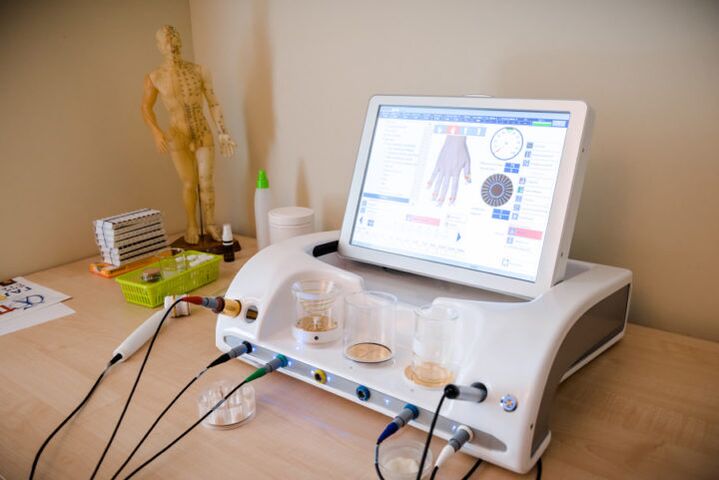
The question of how to identify parasites in the human body worries many, because they are parasitic organisms, the developmental period of which takes a permanent or temporary presence in the human body. This can be done due to certain symptoms. Although different parasites manifest themselves differently, there are some common symptoms that can cause a person to think that they are not very pleasant roommates. Second, it is possible to determine the presence of parasites in the body using special diagnostics. Timely diagnosis can prevent serious consequences and avoid diseases caused by the negative effects of worms.
Signs of parasites in the body
How do you know if there are parasites in the body? You need to listen carefully to your body and the processes that take place in it. In the early stages of parasitic invasions, the symptoms may not be bright enough, but a person who pays attention to his health will see pathological events and be careful:
- Allergic reactions. One of the symptoms of a parasitic attack on the human body is an allergy. In response to the negative effects of parasites, the human body begins to produce more eosinophils - protective cells. May cause allergic reactions. In turn, the parasites release immunoglobulin E into the host's bloodstream, which helps increase allergies. The most effective substance for parasitism is roundworm allergy, which causes reactions in the body (skin rash), digestive system, lungs and conjunctiva.
- Gastrointestinal Disorders. Parasites localized in the small intestine provoke an inflammatory process inside, resulting in disruption of normal bowel function. Foods are poorly absorbed, undigested fats enter the rectum, a person has spasms, and diarrhea is replaced by constipation. In addition, the patient experiences nausea and heartburn in the epigastric region, left or right hypochondrium. Appetite disappears, body weight decreases. When there are disorders of the bile and digestive tract, the skin may appear acne, pigmentation, the skin becomes dry and soft, the skin becomes pale.
- Some worms, due to their size or number, can block the bile ducts, resulting in a generalbile duct obstruction, which worsens or stops bile flow in humans. it manifests itself in obstructive jaundice. Problems with the gallbladder or liver can affect the condition of the skin, as toxins are mainly excreted through the skin. Wet spots, acne, yellowing of the skin.
- Fecal diseasesmanifest themselves as diarrhea and constipation. Constipation occurs when the intestinal lumen is blocked by parasites. As for diarrhea, it is triggered by substances such as prostaglandins, which cause chloride and sodium deficiency in the body.
- Prolonged diarrhea causes dehydration, which causesdysbiosis.
- Parasites greatly deplete the immune system, produce less immunoglobulin A and make the body more susceptible to viral and infectious diseases.
- Due to the migration of parasites in the body, they can be located anywhere, including muscles and joint fluid. Inflammatory processes that cause pain occur as a result of interference with muscles and joints. Therefore, a person haspainful joints and muscle pain.
- Due to the disruption of digestion and absorption of nutrients by worms, people suffer from malnutrition and low blood sugar, resulting in weight loss. Pathogens absorb the minerals and trace elements necessary for a human being, and for this reasondevelops anemia and premature aging.
- Anxiety and nervous conditions provoke toxic waste of parasites, affect the nervous system and cause various disorders. In humans,insomniaoccurs at night as the body tries to get rid of more pests.
- In some cases, a large accumulation of helminthic infestations can causeoncological processes in the host, parasites in a particular organ - lungs, liver, pancreas, and so on.

A careful person will definitely see the symptoms described. It is necessary to check for parasites alone or to consult a doctor so that he can send it for diagnosis.
Diagnostic measures
The presence of parasites in the human body can be determined using high-precision detection of parasites, as well as several diagnostic procedures that determine their type, quantity, localization and damage to human health.
Until recently, the presence of parasites was determined only by fecal analysis. Although this is the simplest research method, the accuracy is not very high. The truth is that parasites do not lay eggs every day, and it is impossible to predict exactly when this will happen. Therefore, for an accurate diagnosis, you should donate stool 10 times a month. It is not very convenient for people to work and study. But now there are more advanced diagnostic methods:
The truth is that parasites do not lay eggs every day, and it is impossible to predict exactly when this will happen. Therefore, for an accurate diagnosis, you should donate stool 10 times a month. It is not very convenient for people to work and study. But now there are more advanced diagnostic methods:
- X-ray, endoscopy and endobiopsydetects parasites in internal organs (lungs, bile, liver, etc. ).
- PCR (polymerase chain reaction). The parasite's DNA is determined using samples taken in the form of saliva, secretions, or blood. If a blood test shows the presence of parasites, a PCR test can determine if there are any types of parasites.
- ELISA (enzyme-linked immunosorbent assay). Detects antigens & immunoglobulinsThe accuracy of such a diagnosis is 90%, and the type, number and general dynamics of the parasites are monitored.
- Bioresonance Diagnostics. The patient's body is affected by electromagnetic vibrations, only the presence of pathogens can be checked, but it is impossible to determine their types.
Results and outcomes
If you suspect that you are a parasite or just want to be tested on this account, you should consult a doctor - a parasitologist or infection specialist, who will determine how you will be examined and, if the results are positive, prescribe the right treatment. It is very courageous to treat yourself. First, antiparasitic drugs have many contraindications because they are very toxic. Therefore, it can be taken only after a doctor's prescription. Only a doctor can choose the right dose to destroy parasites and cause as little damage to the human body as possible.
Second, some parasites must be removed from the body under medical supervision. A drug kills when it is exposed to a parasite, but before that it injects toxins into a person's bloodstream, which can cause anaphylactic shock in humans.
Third, the use of traditional medicine for parasites is ineffective. They work only as a prophylactic measure, or if the infection has just occurred and the larva has not yet matured, in all other cases, pumpkin seeds, green walnuts, wormwood, etc.
























